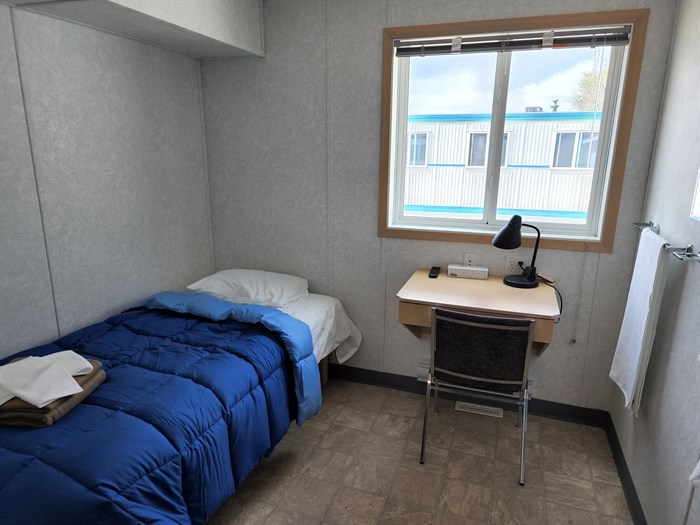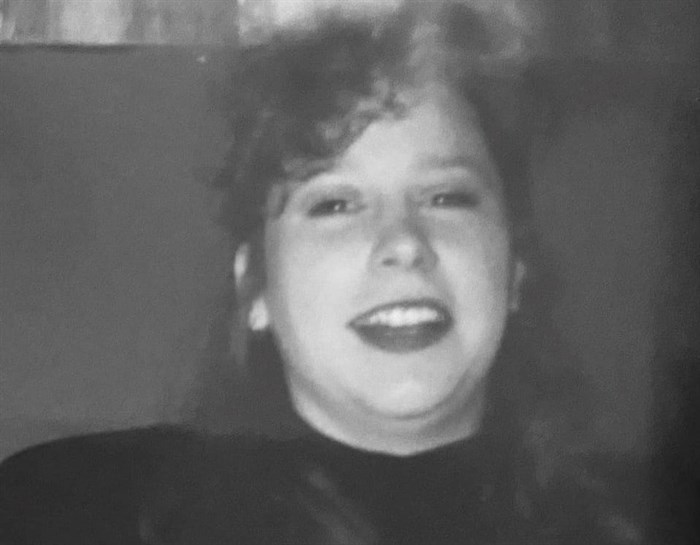
A bedroom at Moira House in Kamloops at 600 Kingston Avenue.
Image Credit: SUBMITTED/ Jesse Ritcey
May 04, 2022 - 7:30 AM
A Kamloops mom who lost her daughter to a drug overdose this year is lending her support for a controversial new housing project on the North Shore.
Moira House, located at 600 Kingston Avenue, is a supportive living facility for homeless people with substance-use disorders and mental issues.
The new project is prompting frustration among some neighbouring home and business owners who fear it could lead to increased crime and littering in the area.
Grace LaBossiere hopes sharing her story will help raise awareness of the overdose crisis and push for more professional supports and complex care beds in the city, and more wrap-around services like the ones Moira House is providing.
“If my daughter hadn't died in January from fentanyl toxicity, this would have been the ideal place for her,” she said. “Hopefully this facility will help others.”
READ MORE: iN PHOTOS: A tour through Kamloops's newest homeless shelter
LaBossiere’s daughter Shannon Burreul died of an overdose after struggling with a mental health disorder and addiction in a run-down motel on Columbia Street on Jan. 14, 2022.
“Shannon was a difficult teenager but we didn’t realize there was anything wrong with her until she was diagnosed with schizophrenia at age 25,” LaBossiere said. “She had two children by then. Like so many others, she didn’t stay compliant with taking medication. She ended up divorced and lost custody of her children.”

Kamloops resident Shannon Burreul tragically died of a drug overdose on January 14, 2022.
Image Credit: SUBMITTED/ Grace LaBossiere
LaBossiere said after the loss of her family, her daughter continued to deteriorate.
“We didn’t realize how bad she was,” she said. “She was in and out of psychiatric units but was able to mask the severity of her mental illness and was continually released.”
LaBossiere said her daughter was able to maintain a roof over her head, typically basement suites up until about 10 years ago. She is unclear how long Shannon was doing hard drugs.
“She just got worse and worse over time, self-medicating by smoking crack,” she said. “She was in and out of local supportive housing facilities but every time she got sick and acted out she was put back into the street.”
People assigned to live at Moira House are on a path to permanent housing. It offers opportunities for residents to obtain job skills and learn about horticulture. There is a designated room for supervised consumption of other substances and professional nursing staff regularly available, along with onsite security personnel.
READ MORE: Kamloops residents take aim at new B.C. Housing shelter location
While LaBossiere said she did provide accommodation for her daughter off and on, the arrangement never lasted for very long.
“Families can’t do it,” she said. “It is an impossibility. We are not trained professionals. They need complex care and that is what I’m seeing offered by Moira House. I would say half the people on the street are addicted because of mental illness. Our current facilities do not have trained personnel to deal with complex illness.”
The night she died, Shannon smoked heroin that was laced with fentanyl in a location far away from a safe injection site.
“When they found her, her heart had been stopped for about 20 minutes,” LaBossiere said. “She was in a bathroom in the Columbia Hotel in Sahali. The people she was with were stoned and delayed calling for help.”
LaBossiere said she and other family members went to the hospital to say their goodbyes. Shannon was declared brain dead. They were able to donate two of Shannon’s kidneys and her liver.
“She died peacefully and did some good in the end for people needing organs,” LaBossiere said. “But I’m angry, she shouldn’t have died. Where are the complex beds needed to help these people? We need trained mental health workers and proper supports in place.”
While the new Moira House is geared toward people who are pursuing recovery and LaBossiere cannot be sure her daughter would have qualified, she is optimistic about the new model and wants more opportunities like it for others struggling at all stages of mental health and addiction.
“There are people like Shannon out there being beaten and raped,” LaBossiere said. “She could have been found in a dumpster. There are young people dying. I’m sad and upset. Nobody chooses to live this way.”
To contact a reporter for this story, email Shannon Ainslie or call 250-819-6089 or email the editor. You can also submit photos, videos or news tips to the newsroom and be entered to win a monthly prize draw.
We welcome your comments and opinions on our stories but play nice. We won't censor or delete comments unless they contain off-topic statements or links, unnecessary vulgarity, false facts, spam or obviously fake profiles. If you have any concerns about what you see in comments, email the editor in the link above.
News from © iNFOnews, 2022